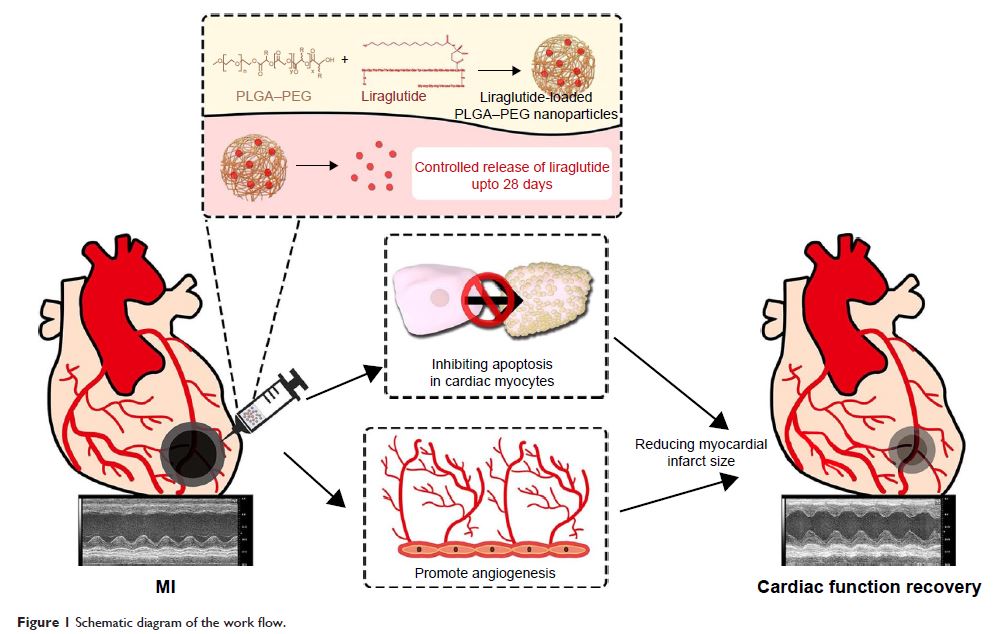109451
论文已发表
注册即可获取德孚的最新动态
IF 收录期刊
- 3.4 Breast Cancer (Dove Med Press)
- 3.2 Clin Epidemiol
- 2.6 Cancer Manag Res
- 2.9 Infect Drug Resist
- 3.7 Clin Interv Aging
- 5.1 Drug Des Dev Ther
- 3.1 Int J Chronic Obstr
- 6.6 Int J Nanomed
- 2.6 Int J Women's Health
- 2.9 Neuropsych Dis Treat
- 2.8 OncoTargets Ther
- 2.0 Patient Prefer Adher
- 2.2 Ther Clin Risk Manag
- 2.5 J Pain Res
- 3.0 Diabet Metab Synd Ob
- 3.2 Psychol Res Behav Ma
- 3.4 Nat Sci Sleep
- 1.8 Pharmgenomics Pers Med
- 2.0 Risk Manag Healthc Policy
- 4.1 J Inflamm Res
- 2.0 Int J Gen Med
- 3.4 J Hepatocell Carcinoma
- 3.0 J Asthma Allergy
- 2.2 Clin Cosmet Investig Dermatol
- 2.4 J Multidiscip Healthc

时空递送纳米配方的利拉鲁肽 (Liraglutide) 可用于心肌梗塞后心肌再生
Authors Qi Q, Lu L, Li H, Yuan Z, Chen G, Lin M, Ruan Z, Ye X, Xiao Z, Zhao Q
Received 10 January 2017
Accepted for publication 8 May 2017
Published 7 July 2017 Volume 2017:12 Pages 4835—4848
DOI https://doi.org/10.2147/IJN.S132064
Checked for plagiarism Yes
Review by Single-blind
Peer reviewers approved by Dr Colin Mak
Peer reviewer comments 2
Editor who approved publication: Dr Linlin Sun
Abstract: The local,
intramyocardial injection of proteins into the infarcted heart is an
attractive option to initiate cardiac regeneration after myocardial infarction
(MI). Liraglutide, which was developed as a treatment for type 2 diabetes, has
been implicated as one of the most promising protein candidates in cardiac
regeneration. A significant challenge to the therapeutic use of this protein is
its short half-life in vivo. In this study, we evaluated the therapeutic
effects and long-term retention of liraglutide loaded in poly(lactic-co -glycolic acid)–poly(ethylene
glycol) (PLGA–PEG) nanoparticles (NP-liraglutide) on experimental MI. PLGA–PEG
nanoparticles (NPs) have been shown to efficiently load liraglutide and release
bioactive liraglutide in a sustained manner. For in vitro test, the released
liraglutide retained bioactivity, as measured by its ability to activate
liraglutide signaling pathways. Next, we compared the effects of an
intramyocardial injection of saline, empty NPs, free liraglutide and
NP-liraglutide in a rat model of MI. NPs were detected in the myocardium for up
to 4 weeks. More importantly, an intramyocardial injection of NP-liraglutide
was sufficient to improve cardiac function (P <0.05),
attenuate the infarct size (P <0.05),
preserve wall thickness (P <0.05), promote
angiogenesis (P <0.05) and prevent
cardiomyocyte apoptosis (P <0.05) at
4 weeks after injection without affecting glucose levels. The
local, controlled, intramyocardial delivery of NP-liraglutide represents
an effective and promising strategy for the treatment of MI.
Keywords: spatiotemporal
delivery, nanoformulated liraglutide, cardiac regeneration
